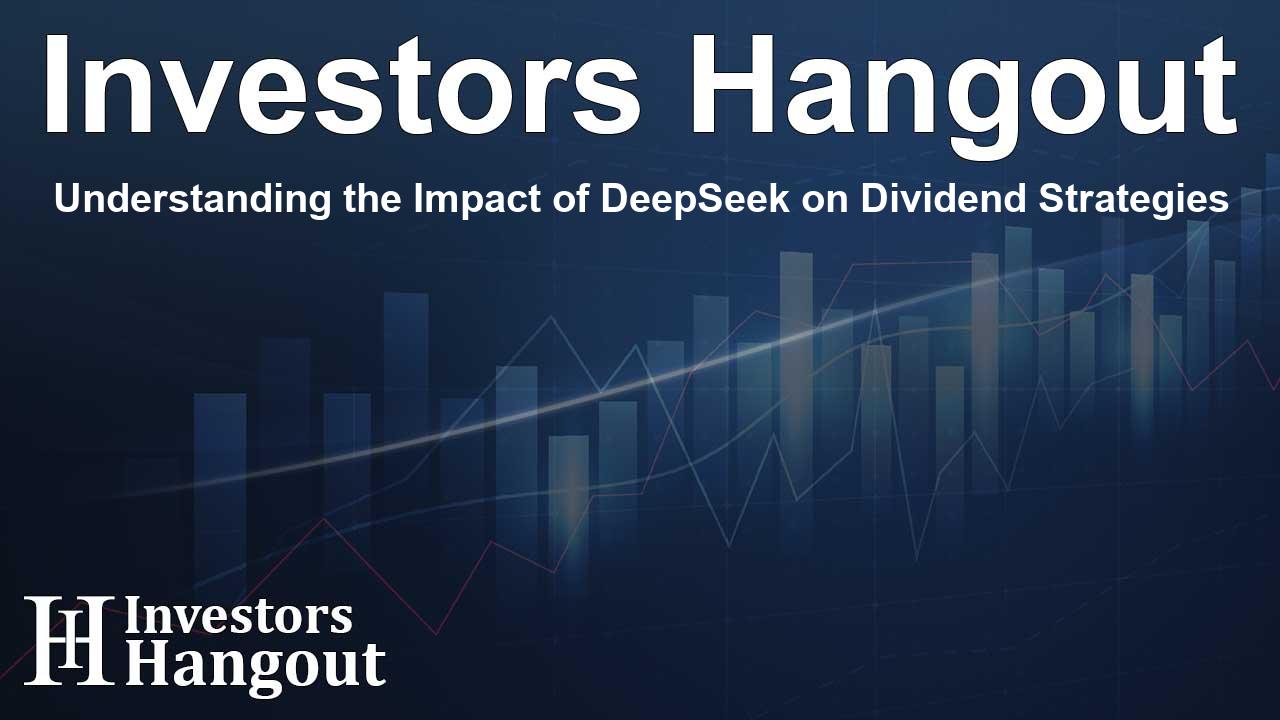Understanding the Impact of DeepSeek on Dividend Strategies

Impact of DeepSeek's AI Innovations on Dividend Investing
Investors have been closely monitoring the implications of DeepSeek's recent advancements in artificial intelligence (AI) and their potential impact on dividend portfolios. This new technology is causing ripples in the investment landscape, and it's essential to stay informed about how it could affect income investing strategies.
Examining QYLD and Its Dividend Potential
Taking a closer look at popular income-generating ETFs, let’s consider the Nasdaq 100 Covered Call ETF (NASDAQ: QYLD), which boasts an impressive yield of 12.2%. Many income-seeking investors are tempted to invest in QYLD, hoping for consistent returns without constant monitoring. However, it's vital to approach this fund with caution.
Understanding the QYLD Strategy
QYLD employs a simple yet strategic approach by purchasing stocks within the Nasdaq 100 and selling covered calls against these holdings to create income. This method generates a significant yield but does come at the cost of potential capital appreciation. While QYLD previously delivered an excellent return of 26.7% over just 15 months, market conditions and technological advancements pose new challenges.
Effects of AI Dynamics on Major Tech Stocks
Recently, the emergence of DeepSeek has led to significant turmoil in the stock prices of major technology companies. For instance, Nvidia (NASDAQ: NVDA) saw a substantial decline of 16% in a week. This downturn was largely due to competition from newer AI technologies that require less processing power, showcasing a shift in competitive dynamics.
Possible Consequences for QYLD Holdings
Despite its impressive yield, QYLD holds approximately 7.7% of its portfolio in NVDA. This exposure raises concerns about the fund's stability as NVDA's stock price fluctuates due to the latest advancements in AI. Moreover, QYLD also has a 7.8% position in Microsoft (NASDAQ: MSFT), which was similarly affected, dropping 6.5% as market sentiment shifted.
Considering these factors, investors need to be aware that QYLD might not be as secure as it seems. The high yield of this ETF may be clouding the realities of underlying risks. As we see deep-rooted changes in technology impacting major players, it raises the question of whether QYLD's dividend strategy can withstand such volatility.
AI's Influence on Future Investment Strategies
As the AI landscape evolves, concepts around investment strategies must adapt as well. A pivotal takeaway from DeepSeek's introduction is the expectation of a more competitive environment in the AI space, leading to shifts in stock valuations amongst tech giants.
Evaluating Alternatives to Conventional ETFs
The current climate suggests that investors should reconsider conventional ETFs like the SPDR S&P 500 ETF (SPY), which carries significant holdings in the same tech stocks under scrutiny. Combining a 19% exposure to tech heavyweights exposes SPY to the same risks that QYLD faces.
Additionally, the Global X S&P 500 Covered Call ETF (NYSE: XYLD) employs a strategy akin to that of QYLD, which could also be problematic given their similar exposures to volatile tech stocks. Even with enticing yields, the risks associated with these funds are amplified in today’s rapidly changing market.
Strategic Shifts Toward More Resilient Investments
Investors seeking reliable income should search for alternatives that are less affected by the ongoing shifts in the technology sector. A more promising investment option might offer dividends around 11% without the exposure to volatile companies like NVDA, MSFT, or AAPL, which dominate both QYLD and XYLD.
Conclusion: Navigating the New AI Landscape
As the AI wave continues to reshape industries, dividend investors need to tread carefully. It is critical to evaluate not only current yields but also the potential risks posed by economic and technological advancements. Staying informed and adapting strategies accordingly will be essential for maintaining a resilient income portfolio.
Frequently Asked Questions
What is DeepSeek, and why is it important for investors?
DeepSeek is an AI technology that has emerged as a competitive force in the market, demonstrating efficiencies that may impact traditional tech companies and overall investment strategies.
How does QYLD generate income?
QYLD generates income by purchasing stocks in the Nasdaq 100 and selling covered calls on those stocks, providing investors with attractive yield but potential risks to capital appreciation.
Why should I be wary of QYLD investments?
Investors should be cautious due to QYLD's exposure to volatile stocks like Nvidia and Microsoft, which could lead to significant fluctuations in the fund's performance.
What are alternative investment strategies?
Alternative strategies could include investing in dividend-paying stocks with lower tech exposure or focused funds that prioritize stability amid market disruptions.
How can I stay informed about changes in the market?
Investors can stay informed by following market news, analysis from financial advisors, and adapting investment strategies as market conditions evolve.
About The Author
Contact Caleb Price privately here. Or send an email with ATTN: Caleb Price as the subject to contact@investorshangout.com.
About Investors Hangout
Investors Hangout is a leading online stock forum for financial discussion and learning, offering a wide range of free tools and resources. It draws in traders of all levels, who exchange market knowledge, investigate trading tactics, and keep an eye on industry developments in real time. Featuring financial articles, stock message boards, quotes, charts, company profiles, and live news updates. Through cooperative learning and a wealth of informational resources, it helps users from novices creating their first portfolios to experts honing their techniques. Join Investors Hangout today: https://investorshangout.com/
The content of this article is based on factual, publicly available information and does not represent legal, financial, or investment advice. Investors Hangout does not offer financial advice, and the author is not a licensed financial advisor. Consult a qualified advisor before making any financial or investment decisions based on this article. This article should not be considered advice to purchase, sell, or hold any securities or other investments. If any of the material provided here is inaccurate, please contact us for corrections.
